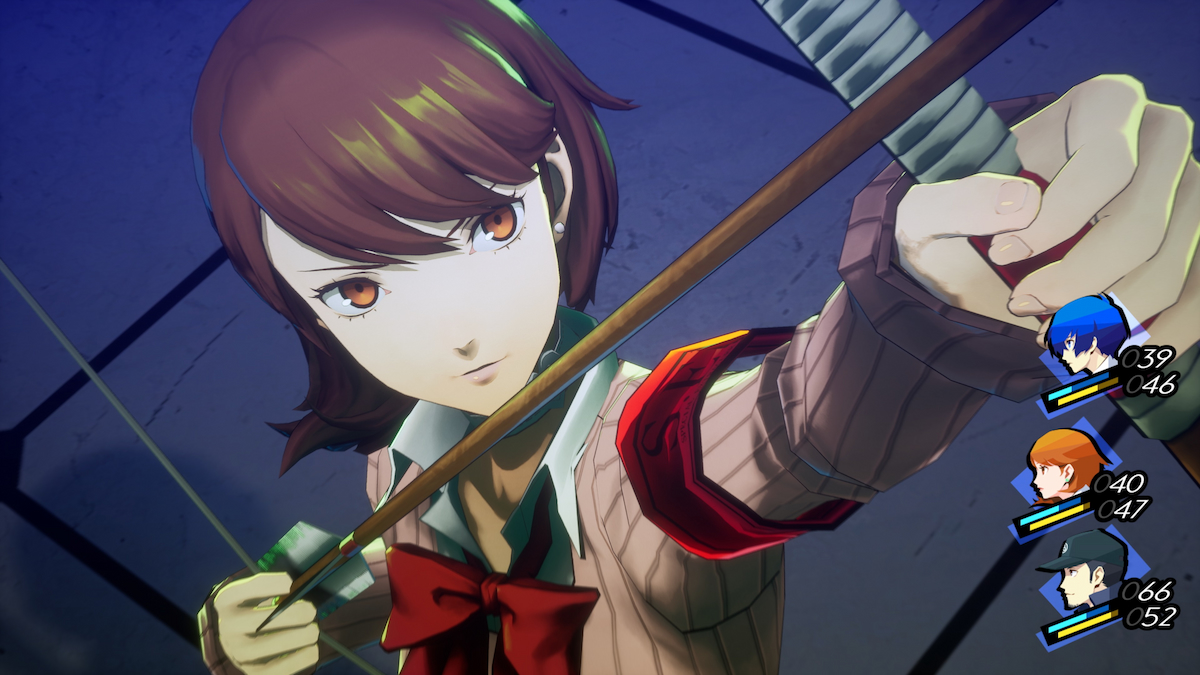Persona 3 Reload proved to me just how much Persona 3 has needed a remake.
Originally released in 2006 (2007 in North America), Persona 3 marks the start of the “modern” Persona series. Sure, the first games featured students summoning demons like they’re Pokémon. But your social links, life sim elements, and more – that all started with Persona 3. I know many who still consider it a series high, but honestly, Persona 3 has always been a bit hard to come back to. On PS2, the game is missing essential quality of life, such as being able to even control your own party members. And while the PSP version fixes some of this, it comes with the caveat of feeling very much like a condensed PSP game.
As someone who has tried and failed to get deep into Persona 3 myself, I’ve been deeply curious about Persona 3 Reload. On the surface, just slapping Persona 3 on top of the foundation of Persona 5 would have been enough. But after getting to test Persona 3 Reload for myself at a recent event held by Sega, I’m hopeful that Persona 3 Reload will be even more than that.
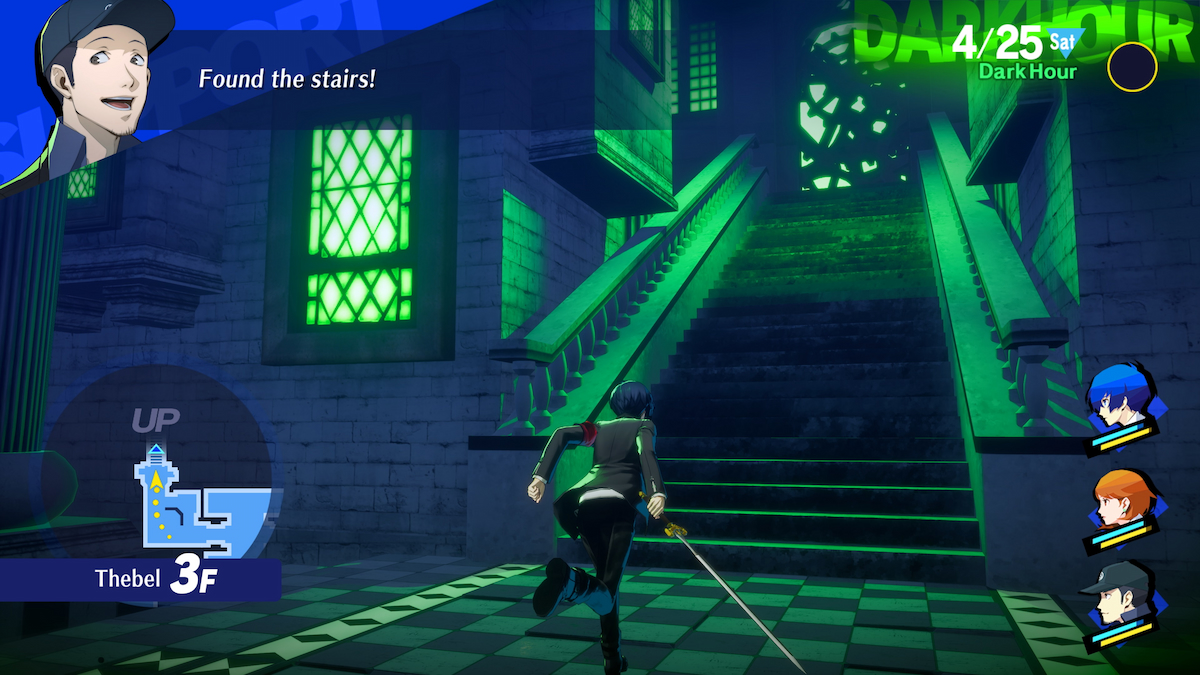
Prepare to dungeon crawl
At the event, I was able to demo two small slices of the game. The first section gave me roughly 15 minutes inside of Tartarus, the game’s dungeon crawling hub.
Right off the bat, I can’t stress enough that Persona 3 Reload is a very, very pretty game. While it might not look too special compared to Persona 5, the new character models alone are a huge jump from Persona 3. Similarly, just as Persona 5 oozed with style via its UI, Persona 3 has much the same flourish. Everything from your main menu to your victory screens are just what you’d expect from a Persona 5 successor, even if this is a remake.
The inside of Tartarus felt familiar at the outset. Just like the original, you’ll make your way through corridors while you aim to get preemptive attacks on roaming enemies. The dungeon layout was kind of generic, but floors were brief with roughly three battles on each if you fight everything you see. The inclusion of a dash button helped minimize backtracking, and overall, the exploration felt well-paced.
Of course, this is based on the very early game. Tartarus could feel repetitive after a while, so we’ll only know how well this portion of the game holds up in the full release. I will say that, after comparing footage of the original game, the version in Tartarus in Reload does look quite a bit different with its sharp blue and green aesthetic. It felt familiar despite being new, which was a recurring theme with much of this demo.
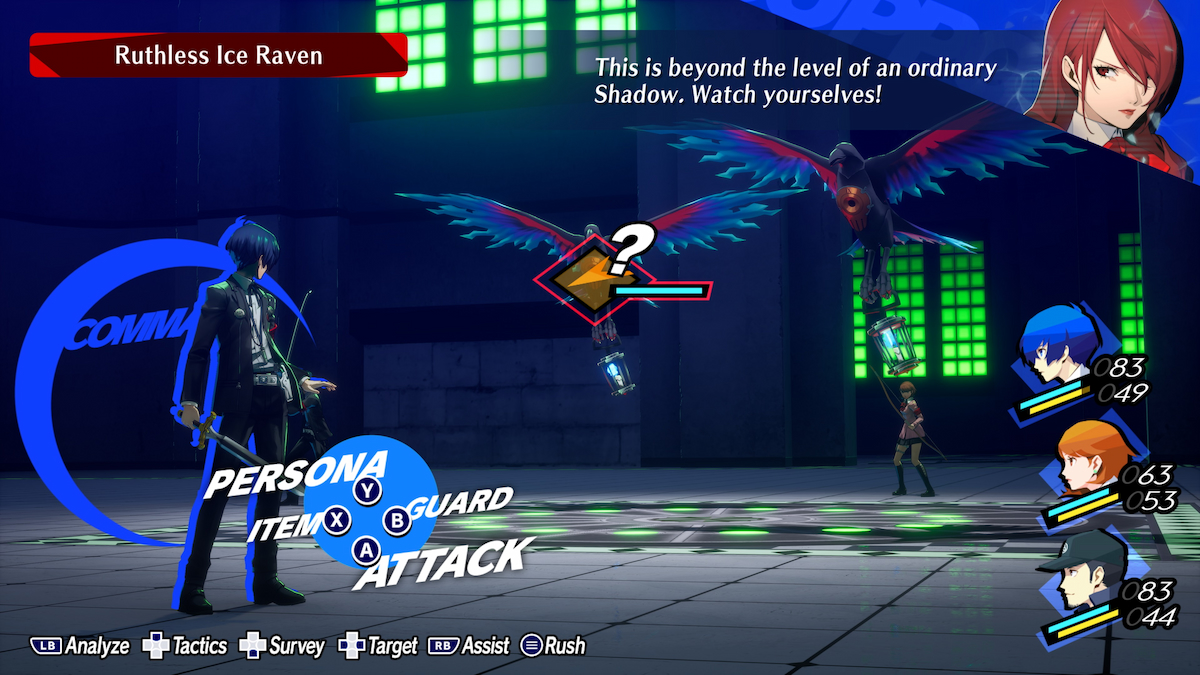
Returning battle mechanics
Combat in Persona 3 Reload felt immediately familiar to me, which I’d consider a good thing. You’ll strike enemy weaknesses via physical or elemental attacks, which will knock them down. Knock downs give you extra turns, and knocking the entire enemy party lets you trigger bonus all-out attacks. Reload retains the three physical elements from Persona 3, meaning that you’ll delineate between Slashing, Piercing, and Striking damage. My demo tools mostly focused on the magical end of things, though.
I was happy to see the return of Shuffle Time, which I really enjoyed in Persona 4 Golden specifically. Cards will stay face up here, making it really easy to pick which boon you’ll take following combat. I love the dynamic of wondering what cards you’ll find after a battle, especially if you, say, want to conserve healing items and hope you’ll find a card to heal you instead. It’s a small thing, but it really makes the happiness chemicals fire off in my brain.
Near the end of my time in Tartarus, I got a glimpse at a mechanic that Persona 3 Reload calls Shifting. Basically, when you knock an enemy down and earn a One More, you can donate your extra turn to a party member. In other words, it’s similar to Baton Pass in Persona 5. This side of the demo ended shortly after I uncovered this, so I couldn’t get into the specifics of how Reload handles this mechanic. However, in a game that originally stripped party member control away from the player, getting Shifting so early almost felt like an apology from the developers.
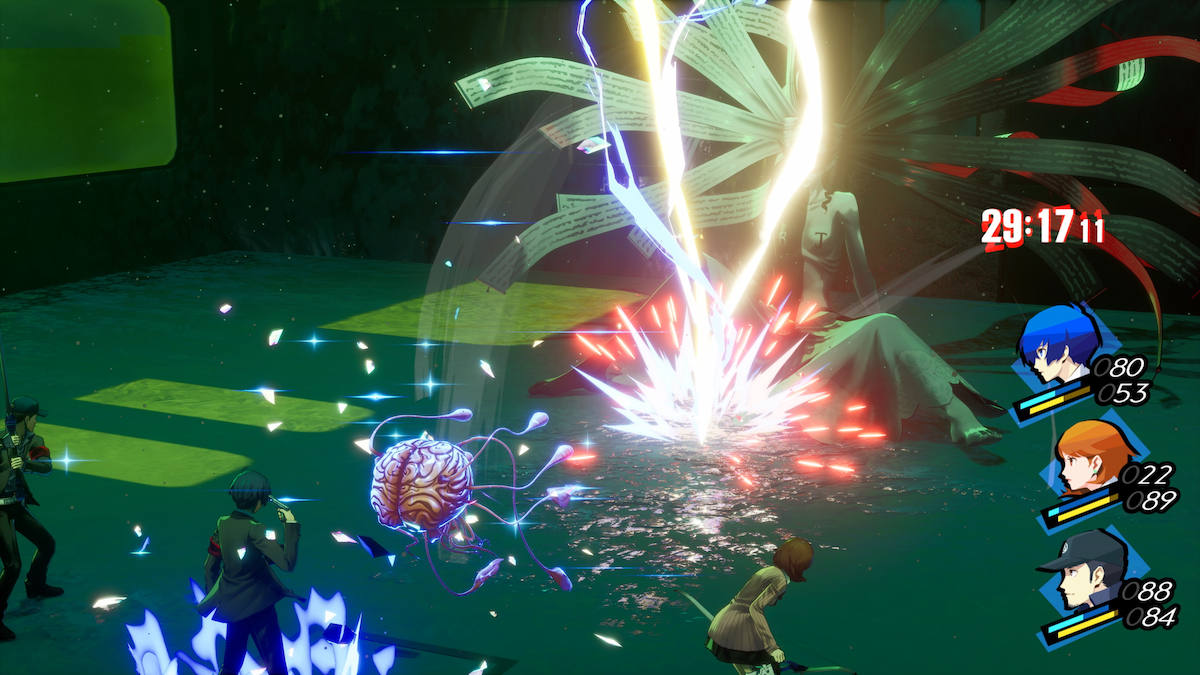
Some old, some new
The second section I got to test in Persona 3 Reload involved the sequence leading to the Arcana Priestess boss. I initially thought this sequence stayed perfectly faithful to Persona 3. However, I didn’t realize that a few changes were made when I compared it to footage of the original game.
For starters, the path to the boss in which the party rushes through train cars featured a bit of added dialogue. The text that I could identify as new wasn’t exactly riveting, but I did find the inclusion exciting. It showed me that Persona 3 Reload isn’t afraid to expand on the original game, even if it was in a smaller capacity.
The boss battle itself was where I noticed the starkest change. In both the original Persona 3 and Persona 3 Portable, the party is given a little more than six minutes to finish this battle. As long as you keep up a solid pace, you can take the boss down with time to spare. Reload, on the other hand, gives you a much more generous window of about 30 minutes. However, as the battle progresses, the boss will spend turns accelerating the train, cutting minutes off your time.
This kept me on edge the entire battle, since I could never tell how much time I really had to work with. Once I put an end to the boss, I had about 40 seconds to spare. This certainly wasn’t a major change to the battle. Mechanically, I could see Atlus handling this encounter this way so your timer doesn’t matter until the final stretch. Still, it marked a deliberate change, which left me excited for what the full game could bring.
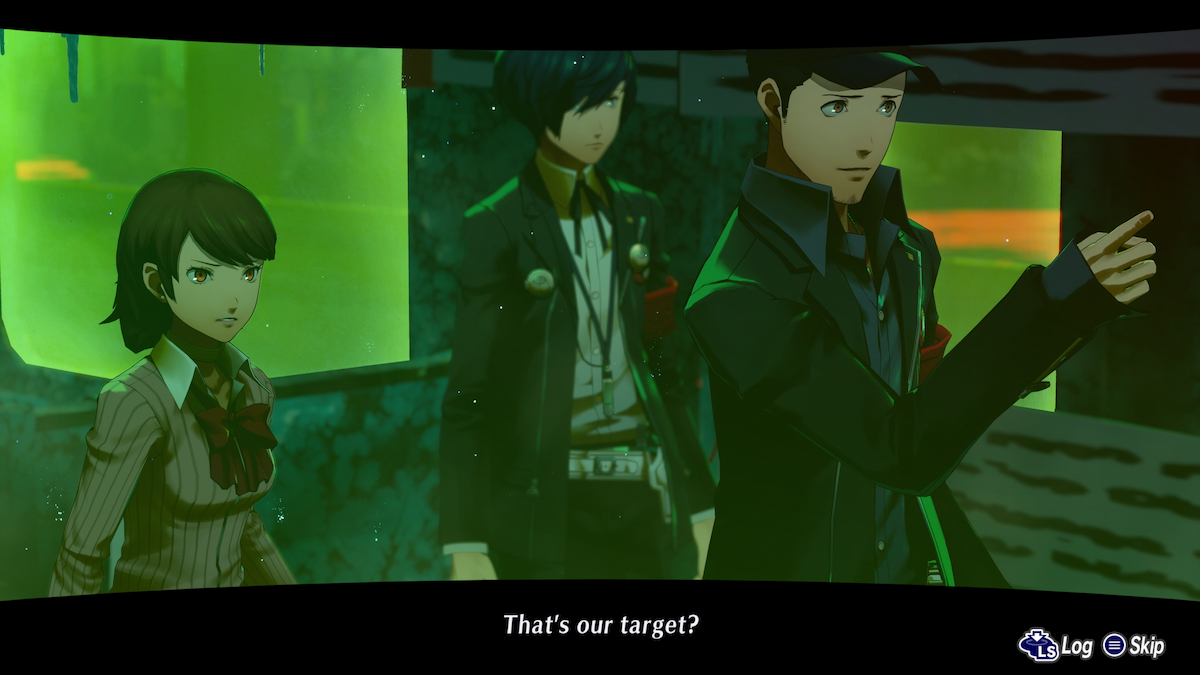
I’m so ready for more Persona 3 Reload
Persona 3 Reload certainly has a bit of baggage weighing its own hype down. Specifically, the news that the game wouldn’t include The Answer or the female protagonist route from Persona 3 Portable doesn’t make Persona 3 Reload as definitive as many would like. I think these are valid criticisms, and my time with the game certainly didn’t change that.
That said, after my session with Persona 3 Reload ended, I knew that this was the version of Persona 3 I was going to finish. What I played was polished to an absolute shine, without a single boring second in sight. Everything from combat to exploration was engaging, to the point that I forgot I was at an event and just wanted to keep playing it for another three hours.
And the music. Oh man does this game sound good. Getting an initiative in normal battles triggers a new battle theme that riffs on Mass Destruction, which was so catchy that would have spent time in battles just listening to it if not for the time limit. I hope Atlus uploads this track early to sate my ears.
All in all, for anyone who likes Persona, Persona 3 Reload looks like an essential playthrough. Whether the final product will stay faithful to the original or take risks here and there, I’ll be excited to play this one when it comes out on February 2, 2024.
